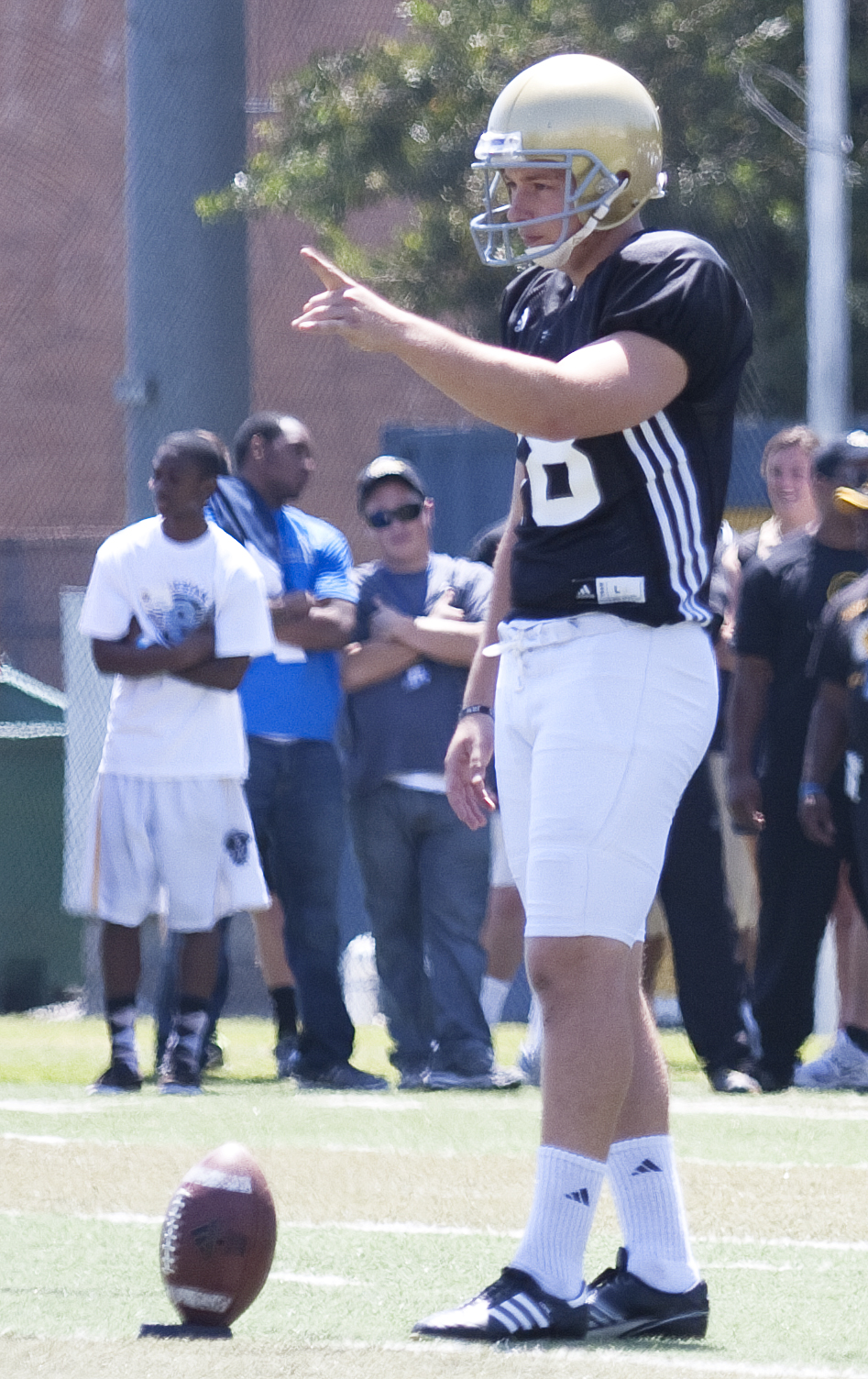Senate Bill 1525 aims to protect injured student-athletes through guaranteed financial aid

Redshirt senior punter Jeff Locke got 70 signatures from the football team in support of Senate Bill 1525.
By Jacob Ruffman
May 15, 2012 1:19 a.m.
The pain became unbearable for Casey Griffiths. The former UCLA offensive lineman had a fracture in his fifth lumbar vertebra that made even day-to-day activities impossible.
“I couldn’t do anything. I couldn’t squat; I couldn’t clean. … I couldn’t even get out of bed. I had to roll over and push myself up to get out of bed. It was miserable,” Griffiths said.
After several attempts to push through the injury for close to a year, Griffiths, a junior, decided about a month ago to end his football career by means of a medical disqualification.
NCAA bylaws state that a college football team can only have 85 players on scholarships, and because of Griffiths’ injury, his athletic scholarship was taken away after he was removed from the roster.
UCLA still honored his scholarship despite his inability to play football, but the current system in place does not guarantee student-athletes a scholarship if they encounter a career-ending injury like Griffiths’.
Such lack of security gave rise to California Senate Bill 1525, which is also known as the “Student-Athlete Bill of Rights.”
State Sen. Alex Padilla introduced this bill in late February as an attempt to ensure medical, financial and educational support to student-athletes in the state of California.
“Our commitment as a state is to provide the opportunity to student-athletes the ability to get a degree,” Padilla said. “What we asked for in the bill was to help further that goal and that commitment.”
The bill would require all California universities that generate an annual average of more than $10 million in media revenue to provide scholarships to student-athletes who lost their athletic scholarships because of injury.
“UCLA has always been great about taking care of their athletes, but this bill makes it a guarantee,” said redshirt senior punter Jeff Locke, who helped collect signatures from over 70 UCLA football players to garner support for the bill.
“It would no longer be a case-by-case basis where they can say, “˜We don’t know if you were hurt enough,’ or “˜We don’t know if it was directly related.’ We want to make sure that everything is guaranteed instead of making decisions at the school’s discretion,” Locke said.
Locke is an active member of the National College Players Association, which was started by UCLA football players in 2001 and is currently headed by UCLA alumnus Ramogi Huma.
The NCPA played a major role in pushing the bill in an attempt to provide student-athletes with more support and protection off the field.
“Most people don’t understand that when they watch a player go down on TV that the player may or may not be stuck with the medical expense and they may or may not lose their scholarship because of the injury,” Huma said.
“The intent of the bill is to provide student-athletes some of the most basic protections.”
Along with scholarship prevention for injured players, the bill would give athletes the opportunity to transfer freely within the Pac-12 and provide student-athletes with financial and life skills workshops in their first and third years.
The NCPA points to the untaxed media revenue that universities receive to fund the guaranteed scholarships and other academic and medical resources.
“The state of California provides these athletic programs a tax-exempt status for their athletic revenues because the schools are supposed to educate and protect the players,” Huma said.
“This bill is in place to ensure that the arrangement doesn’t put athletes in harm’s way.”
In late April, the bill was passed through the Senate Education Committee, which was only the first of several hurdles the bill will face before it becomes law.
Next, the bill must be voted on by the state Senate where it will then be passed onto the House where it will also be voted on before being presented to the governor.


